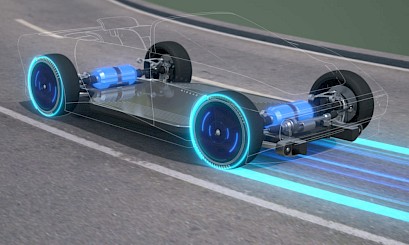Nissan to spend $18 billion developing a cheaper, more powerful EV battery
 Over the next five years, Nissan Motor Company will put 2 trillion yen ($17.6 billion) toward developing a cheaper, more powerful battery to serve its expanded lineup of electric vehicles, the company announced Monday.
Over the next five years, Nissan Motor Company will put 2 trillion yen ($17.6 billion) toward developing a cheaper, more powerful battery to serve its expanded lineup of electric vehicles, the company announced Monday.
Nissan plans to unveil 15 new EV models by 2030, as well as an additional eight partially gas-powered models. Such vehicles will account for half of available models by the end the this decade under the “Nissan Ambition 2030” plan.
“We want to transform Nissan to become a sustainable company that is truly needed by customers and society,” CEO Makoto Uchida said in a statement.
The plan hinges, in part, on Nissan’s goal of producing a solid-state EV battery. Today’s lithium-ion batteries make use of a liquid electrolyte, which converts stored energy into usable electricity. Nissan is developing a battery that uses a solid electrolyte. Solid-state batteries are smaller, lighter and more durable. They also hold more energy and recharge faster. Nissan says its solid-state battery will cut charging time by two thirds and help its EVs to achieve cost-parity with gas-powered cars.
Nissan says that, under its plan, by 2026 fully or partially electric vehicles will account for at least 75 percent of sales in Europe, as well as 55 percent of sales in Japan and 40 percent in China. By 2030, the company forecasts that electrified vehicles will make up 40 percent of sales in the United States.
“We have a 10-year head start over competitors with electrification,” Uchida said in a briefing. “We will leverage this experience [and] speed up the shift with further investment.”
You can return to the main Market News page, or press the Back button on your browser.

